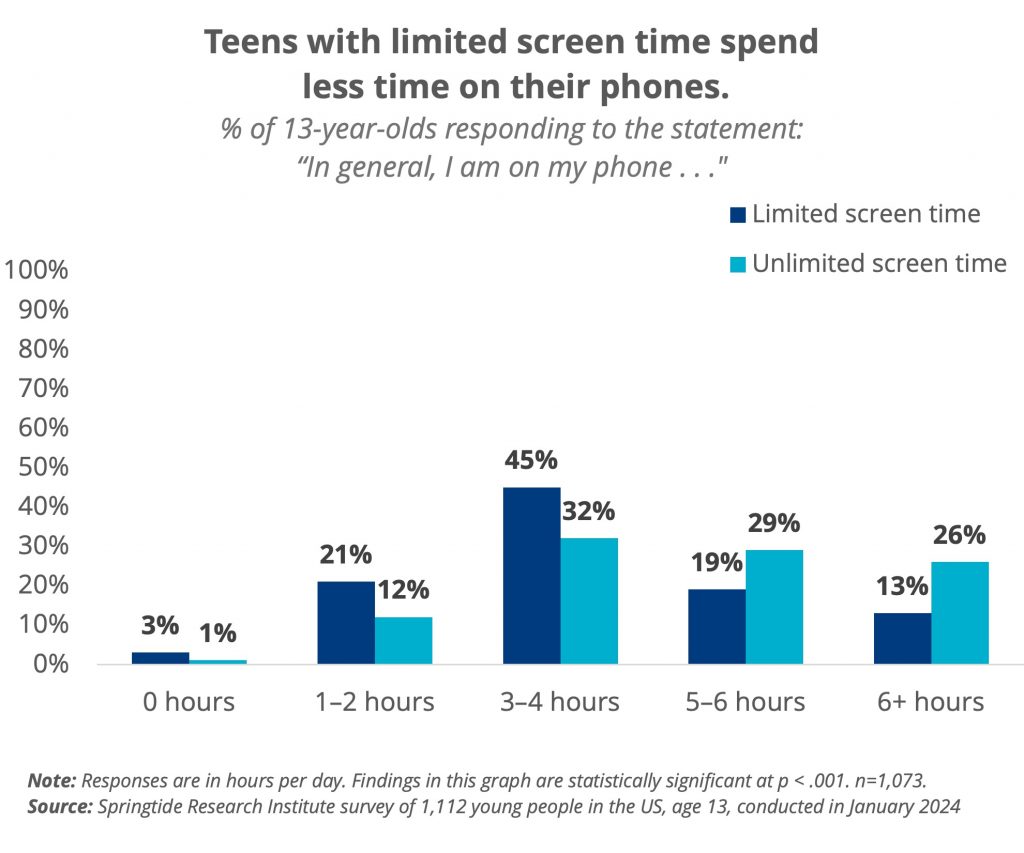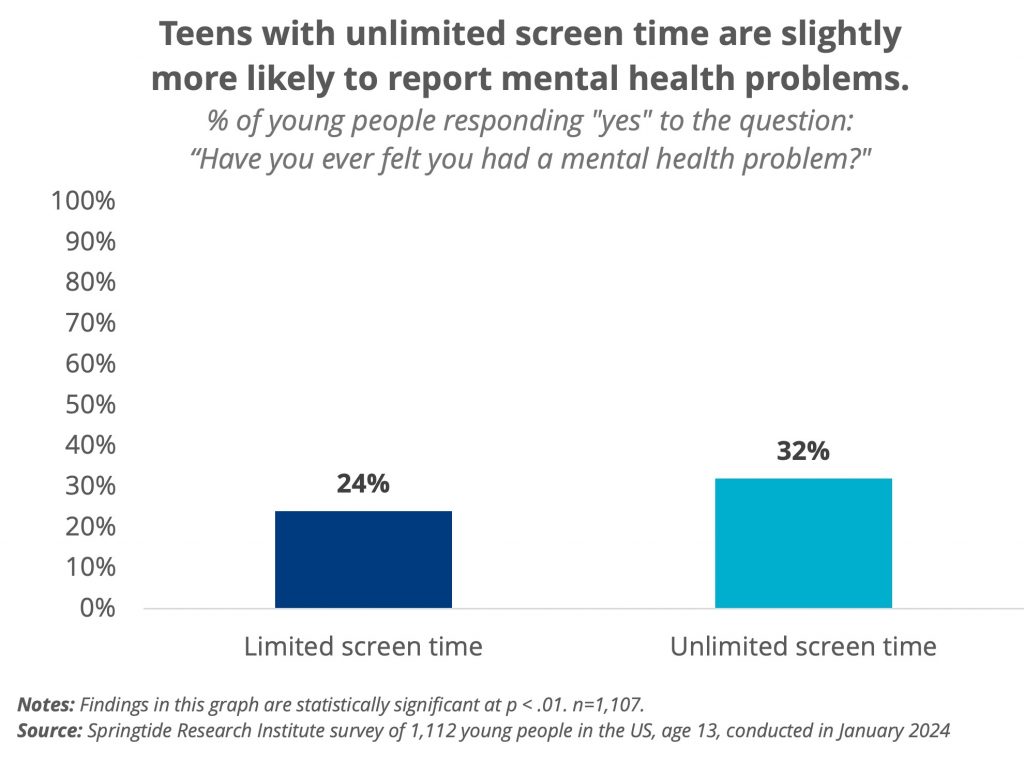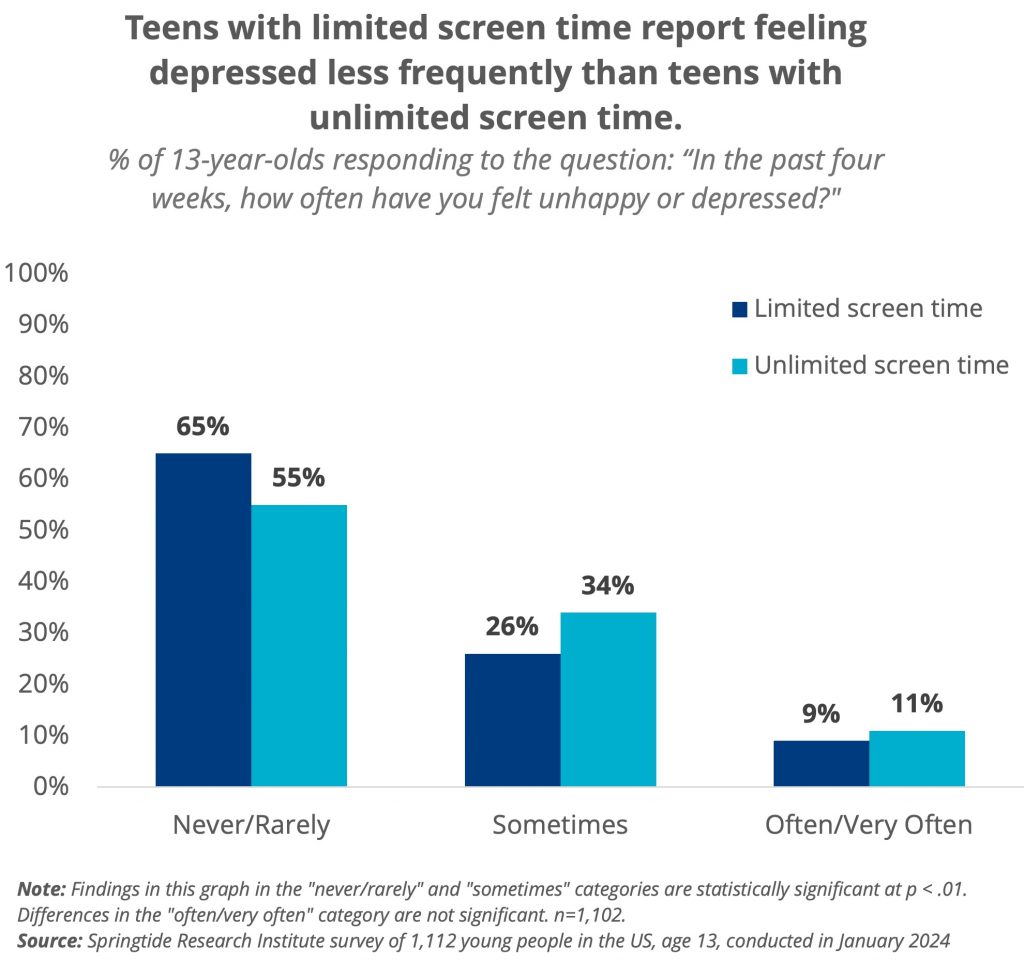
Does limiting screen time improve mental health for teens?
Springtide Research Institute’s 2024 survey of 1,112 Gen Alpha 13-year-olds asked about screen time and mental health. The results show that 13-year-olds with limited screen time use their phones less than those with unlimited screen time. Restrictions on screen time are associated with slightly better mental health outcomes. The graphs here compare 13-year-old respondents who say their parents limit their screen time (56%) and those who say their parents do not (44%).
Teens with restricted screen time spend less time on phones.
Slightly less than half (45%) of 13-year-olds who say their parents limit their screen time indicate that they spend 3–4 hours per day on their phones, and about one-third (32%) of users with unlimited screen time say the same. About one-quarter (24%) of users with limited screen time say they spend 2 hours or less per day on their phones, while only about one-tenth (13%) of users with unlimited screen time report the same. About one-third (32%) of users with limited screen time say they use their phone 5 or more hours per day, and over half (55%) of those with unlimited screen time say the same.

Limited screen time is associated with slightly better mental health outcomes than unlimited screen time.
One-quarter (24%) of 13-year-olds with limited screen time say they have felt like they had a mental health problem. One-third (32%) of teens with unlimited screen time report the same. This could indicate that unlimited screen time users are more likely to experience mental health issues or that they are more readily able to identify their mental health issues because of exposure to online mental health resources.

Overall, the majority of teens say they never or rarely feel unhappy or depressed in the past four weeks. Teens with limited screen time selected “never” or “rarely” more often (65%) than teens with unlimited screen time (55%). Just over one-third of unlimited screen users (34%) say they have “sometimes” felt depressed in the past four weeks, compared to 26% of limited screen users. Respondents from both groups selected “often” and “very often” at similar rates.

Note: See question wording and survey responses in the topline survey results and review methodology here.



